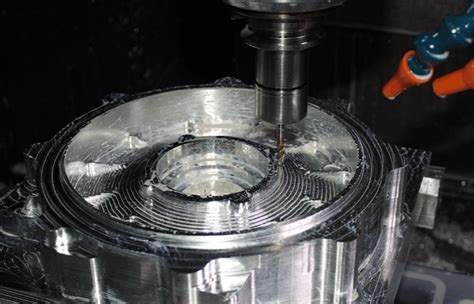CNC machining has revolutionized the manufacturing industry, offering unparalleled precision, speed, and efficiency. The technology has far-reaching applications across various sectors, transforming the way products are designed, prototyped, and produced. From aerospace to medical devices, CNC machining plays a vital role in shaping the modern world.
Understanding CNC Machining
CNC (Computer Numerical Control) machining is a subtractive manufacturing process that uses computer-controlled machines to remove material from a workpiece. The technology relies on a computer-aided design (CAD) file to guide the machining process, ensuring accuracy and precision. CNC machines can perform a range of operations, including milling, turning, drilling, and grinding, to produce complex shapes and designs.
Aerospace Industry
The aerospace industry relies heavily on CNC machining to produce critical components, such as engine parts, satellite components, and aircraft structures. CNC machines can handle exotic materials like titanium and Inconel, which are commonly used in aerospace applications. The precision and accuracy of CNC machining ensure that these components meet the stringent requirements of the aerospace industry.

Medical Device Manufacturing
CNC machining plays a crucial role in medical device manufacturing, producing components for implants, surgical instruments, and diagnostic equipment. The technology's precision and accuracy ensure that medical devices meet the required standards for safety and efficacy. CNC machining also enables the production of complex shapes and designs, which is essential for creating customized medical devices.
Automotive Industry
The automotive industry uses CNC machining to produce a range of components, including engine parts, gearboxes, and transmission components. CNC machines can handle high-volume production, making them ideal for automotive manufacturing. The technology's precision and accuracy also ensure that components meet the required standards for safety and performance.

Aerospace Industry Challenges
While CNC machining offers numerous benefits, the aerospace industry faces unique challenges when using this technology. One of the primary challenges is handling exotic materials, which can be difficult to machine. Additionally, aerospace components often require complex shapes and designs, which can be challenging to produce using CNC machining.
CNC Machining Techniques
CNC machining encompasses a range of techniques, including:
- Milling: A CNC milling machine uses a rotating cutter to remove material from a workpiece.
- Turning: A CNC turning machine uses a rotating tool to remove material from a workpiece.
- Drilling: A CNC drilling machine uses a rotating drill bit to create holes in a workpiece.
- Grinding: A CNC grinding machine uses a rotating wheel to remove material from a workpiece.

Benefits of CNC Machining
CNC machining offers numerous benefits, including:
- Precision: CNC machining ensures accuracy and precision, which is essential for producing complex components.
- Speed: CNC machines can produce components quickly, making them ideal for high-volume production.
- Efficiency: CNC machining reduces waste and energy consumption, making it a more efficient process than traditional machining methods.
Future of CNC Machining
The future of CNC machining looks promising, with advancements in technology and materials science. One of the emerging trends is the use of artificial intelligence (AI) and machine learning (ML) to optimize CNC machining processes. Additionally, the development of new materials and coatings will enable CNC machining to produce even more complex components.

Gallery of CNC Machining Applications






FAQs
What is CNC machining?
+CNC machining is a subtractive manufacturing process that uses computer-controlled machines to remove material from a workpiece.
What are the benefits of CNC machining?
+CNC machining offers numerous benefits, including precision, speed, and efficiency.
What are the applications of CNC machining?
+CNC machining has far-reaching applications across various sectors, including aerospace, medical devices, and automotive.
In conclusion, CNC machining is a versatile technology with numerous applications across various industries. Its precision, speed, and efficiency make it an ideal choice for producing complex components. As technology continues to evolve, CNC machining will play an increasingly important role in shaping the modern world.
